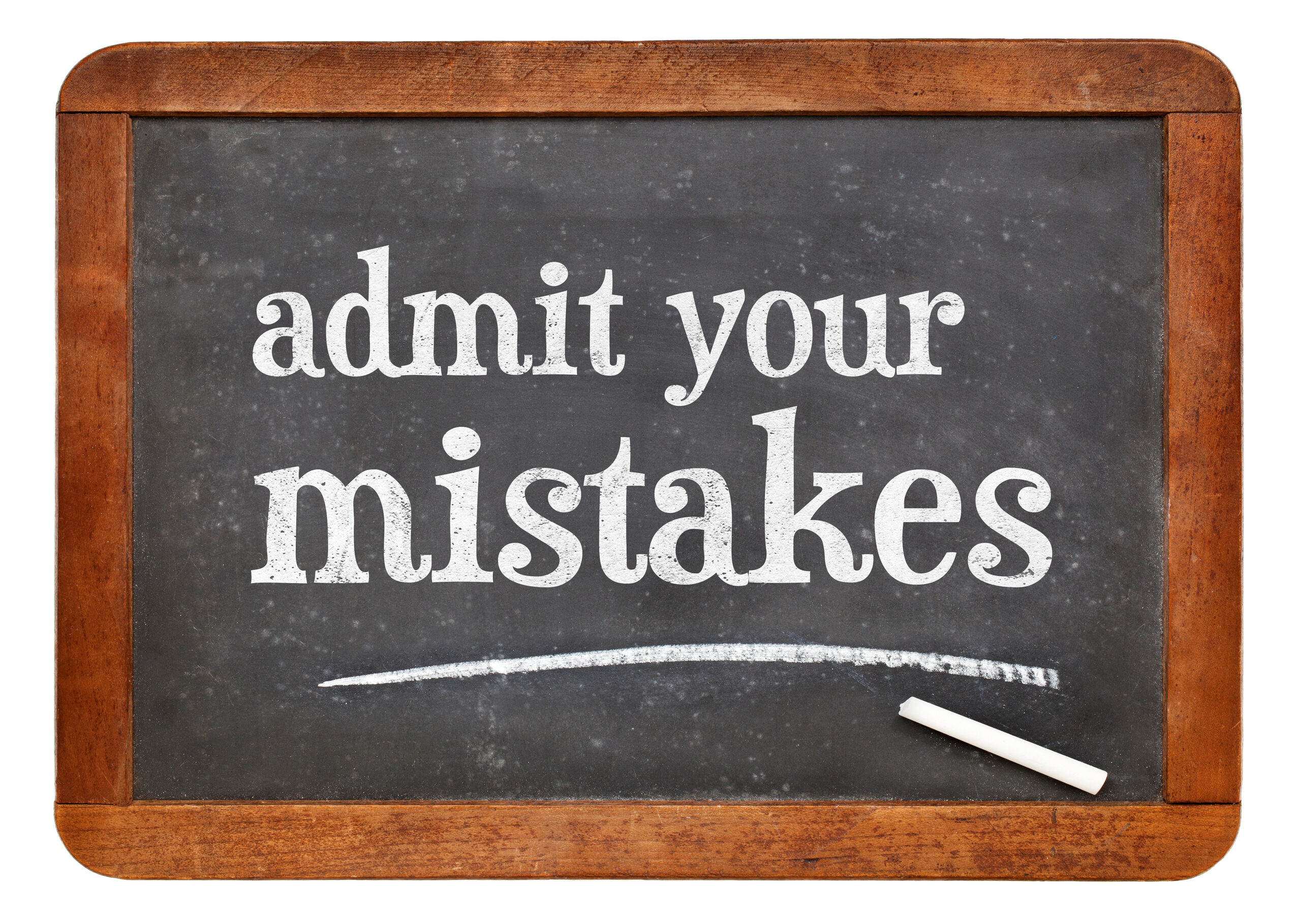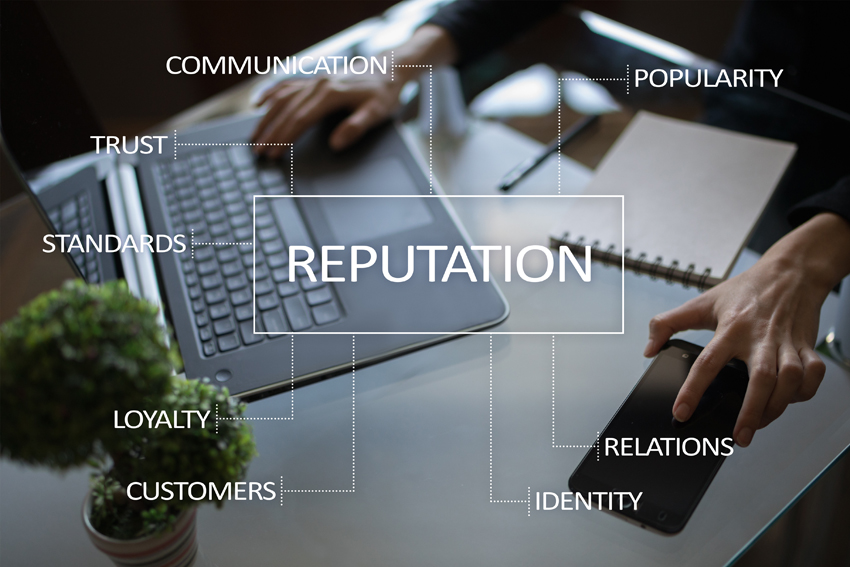Legal Ethics: How to avoid discipline when you’ve made a mistake
Legal Ethics: How to avoid discipline when you’ve made a mistake
By Sari W. Montgomery
At some point in every lawyer’s career, they will be faced with the decision of what to do when they’ve made a mistake in handling a client’s case. When confronted with this ethical dilemma however, some lawyers panic and act impulsively or defensively, which can lead to an unnecessary escalation of the problem.
To avoid this fate, it is important to recognize that everyone, even lawyers, makes mistakes, and that if you do, not to compound the error by trying to cover it up. In many cases where the underlying misconduct would have warranted little or no discipline, the attempt to cover it up involves deceit or dishonesty, which can result in much more serious consequences. For example, a lawyer who inadvertently misses a statute of limitations or other filing deadline and causes the client to lose their cause of action will almost certainly be liable for malpractice. Whether or not the lawyer will also face disciplinary action depends on how the error is handled.
The Rules of Professional Conduct require that lawyers keep their clients reasonably informed about the status of their matters, including informing the client when the lawyer has made a material error. ABA Model Rule 1.4(a)(3); ABA Formal Ethics Op. 481 (2018).1 Once the client is informed of the error and its consequences, if the lawyer wishes to attempt to settle a claim or potential claim directly with the client, he or she must first advise the client in writing that he or she should seek independent counsel and be given the opportunity to do so before deciding whether or not to accept the lawyer’s offer of settlement. ABA Model Rule 1.8(h). Notably, some jurisdictions also expressly prohibit the lawyer from conditioning any settlement on the client’s agreement not to pursue disciplinary charges. See, e.g., Illinois Rule of Professional Conduct 8.4(h). Although it can be difficult, embarrassing, and potentially expensive, being candid with the client and following these steps will often prevent an inadvertent mistake from becoming a disciplinary issue.
Lawyers get into trouble when, in an attempt to hide their mistake, whether out of fear, shame, or embarrassment, they lie to the client or attempt to settle without making the proper disclosures. There are numerous disciplinary cases involving lawyers who falsely advised their client that the case settled, and then paid the “settlement” out of the lawyer’s own funds. Even in instances where the amount paid may have exceeded what the client would have recovered through the litigation (in theory “no harm, no foul”), from a regulatory perspective, this is a classic example of the cover up being worse than the crime and the inherent dishonesty involved can result in the suspension of the lawyer’s license.
If you find yourself in a situation where you believe you may have made a mistake, particularly one that adversely affects your client or involves the improper handling of client funds, and are unsure what to do, there are lawyers in every jurisdiction who represent other lawyers in professional liability and disciplinary matters.2 Your malpractice carrier can also provide assistance in advising you or making a referral. Although many lawyers are concerned that merely contacting their carrier will result in a rate increase, do not let that fear discourage you. The purpose of insurance is to provide coverage when you make a mistake. By not seeking out guidance on how to ethically address your error, you risk not only a potential malpractice action and rate increase, but a disciplinary complaint as well.
In the event you do find yourself the subject of a disciplinary investigation or complaint and you think that you may have made a mistake, you should immediately seek advice from an experienced ethics lawyer and/or your malpractice carrier. Your policy may require such notification and may even provide coverage for the costs of defending a disciplinary action.
All lawyers make mistakes. If and when you do, fight the natural urge to be defensive and cover up the error. How you respond can be the difference between a potentially straightforward pre-claim settlement, and a disciplinary sanction that could have long-lasting consequences. You worked hard for your license and you owe it to yourself, and to your clients, to explore the ethical implications of any proposed course of action before deciding how best to address the problem, and to seek out professional ethics advice when appropriate. In the end, you’ll be glad you did.
1.All references herein are to the ABA Model Rules. Readers should be sure to consult the applicable Rules of Professional Conduct in their own jurisdiction as they can sometimes vary.
- The Association of Professional Responsibility Lawyers (APRL) is a national organization of lawyers who represent other lawyers in ethics and disciplinary matters. See Association of Professional Responsibility Lawyers, http://www.aprl.net.
![]() Sari W. Montgomery is a partner in the Chicago firm of Robinson, Stewart, Montgomery & Doppke LLC where her practice focuses on advising lawyers, law firms, government agencies, and law-related businesses on their ethical obligations. She can be reached at
Sari W. Montgomery is a partner in the Chicago firm of Robinson, Stewart, Montgomery & Doppke LLC where her practice focuses on advising lawyers, law firms, government agencies, and law-related businesses on their ethical obligations. She can be reached at
Share this story, choose a platform
Brought to you by BridgeTower Media
Free Weekly Newsletter
Recommended content
Reputational Management: Mitigating sexual harassment risks at law firm and legal industry events
Reputational Management: Mitigating sexual harassment risks at law firm and legal industry events By Gina Rubel Creating a safe and inclusive [...]
The modern approach to law firm sales and client onboarding
From initial contact to the first signed agreement, each interaction with a new client should reflect a firm’s professionalism, priorities, [...]
What comes before the zero draft? Exploring the negative draft
A negative draft helps writers clarify their thinking by reacting to what does not work. It’s an area where generative [...]
The lawyer’s brain in retirement: What changes and why it matters
Retirement can be daunting for anyone. But lawyers face special challenges when they suddenly disengage from the intellectual intensity of [...]






